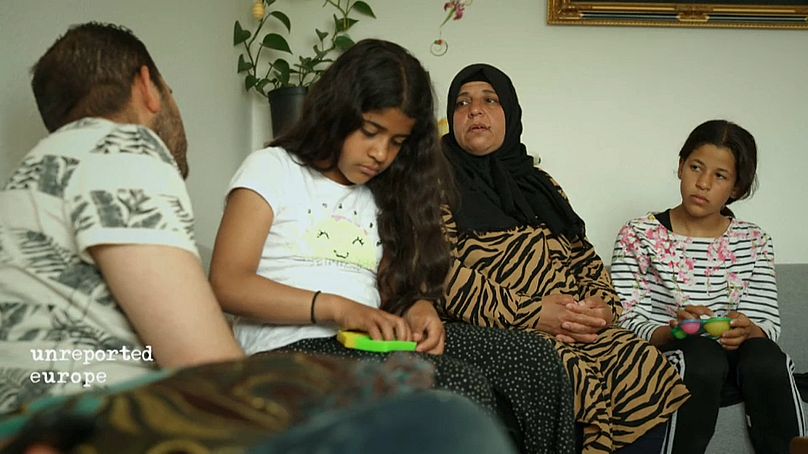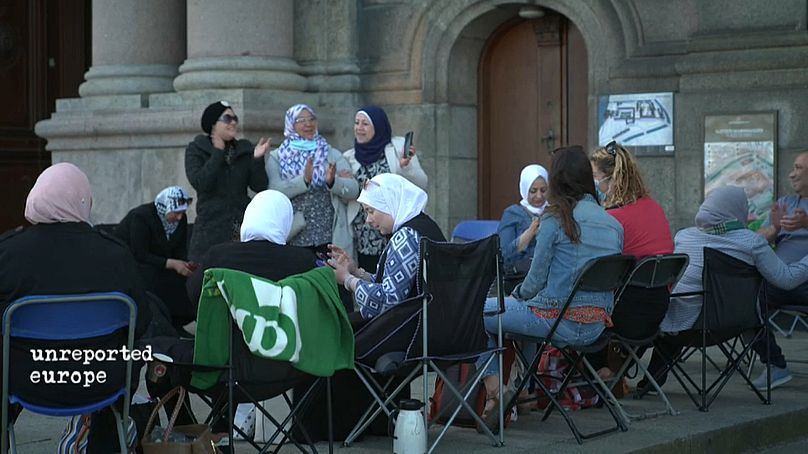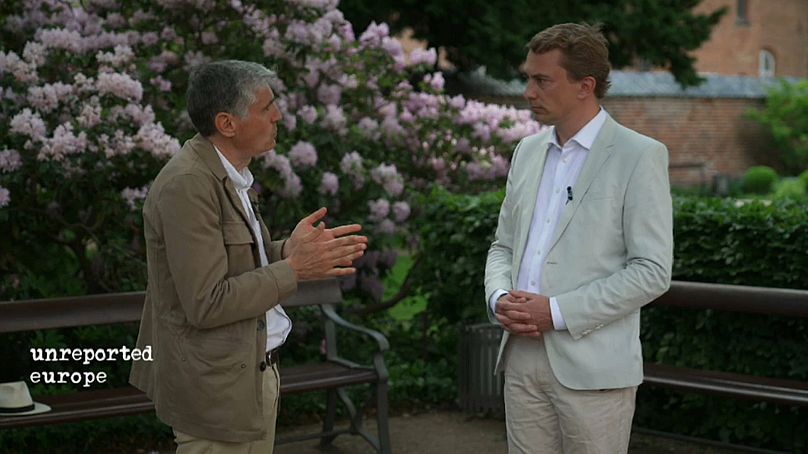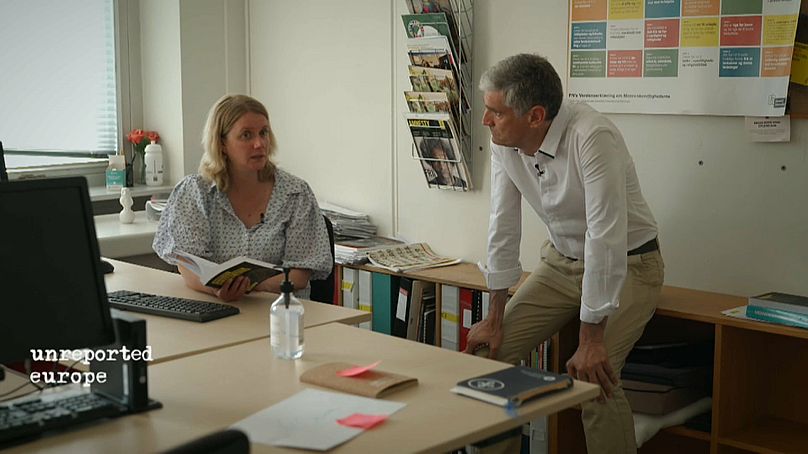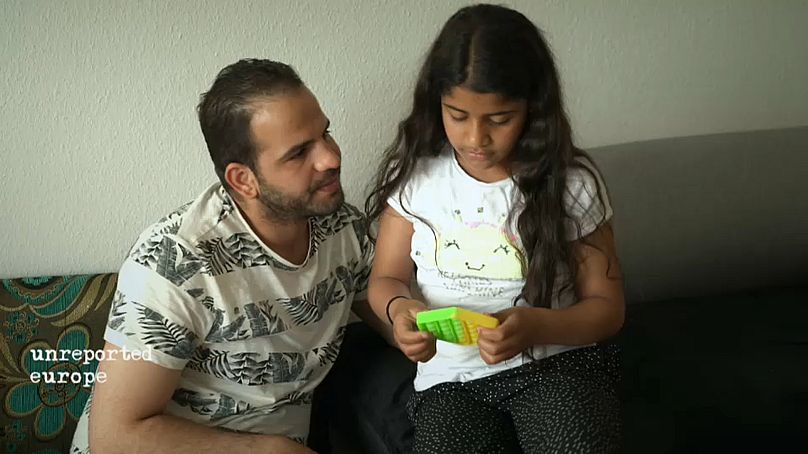The Alata family was torn apart once when their father was killed in Syria. Now they are being put to the test once more as half of the family's refugee status in Denmark is being revoked. Where can they go from here?
In the quiet Danish town of Vejle lives a family twice broken. The Alata's faced their first disaster in Syria when the father of the family was mutilated and executed by President Assad's forces. They fled in 2015.
All five family members were granted temporary refugee status in Denmark. Sabrieh, the mother of the family, has since been diagnosed with Post-Traumatic Stress Disorder (PTSD).
She remembers their last moments in Syria with sadness.
"There was fear and tears. First of all, my husband was killed, then my children left home. There were bombs, the sounds of planes and the sound of raids on homes".
Tearing a family apart
The Alata family's anguish and suffering haven't entirely ended with their arrival in Denmark. This March they received a letter informing them that their refugee status had been reassessed.
The older brothers, one already married and the other about to start High School, are allowed to stay in the country.
Sabrieh and her two daughters, aged 10 and 12 years old, are now required to return to the Damascus region. The Danish authorities now consider it a safe place. This news has come as yet another big blow to the family.
"Why would anyone want to go back? Sabrieh exclaims. She worries that she'll be arrested if she goes back or that they'll ask where she and her family have been.
"I have two boys and they'd ask why they're not in the army. This regime has no mercy. Syria is not safe as far as I'm concerned", she adds.
Refugees speak up
The family has appealed the decision and joined several protests. Around another 200 Syrian refugees, out of some 35 000 Syrian nationals living in Denmark, are currently facing the same situation.
When the first revocation letters arrived, a sit-in protest in front of Parliament started. 57-year-old Samer takes part in this protest. He has been a refugee since 2014. He went on a hunger strike and had to be hospitalised.
He tells us that he knows of many people who are afraid that the Danish authorities will send them back to Syria. According to him, many of those people have already fled to other European countries. "As for those who returned to Syria, I've heard that one or two were stopped at the airport, immediately questioned and have never been heard of since", he adds.
The government position
The Danish government, led by the social democrats, says its decision to revoke refugee status to certain people is based on conclusions from the Danish Refugee Appeals Board. This board is an independent body that over the past year has reassessed the cases of some 1200 refugees from the wider Damascus region.
The Social Democrat Minister for Immigration and Integration, Mattias Tesfaye, declined to meet us. However, he did send us this quote:
- "Denmark has been open and honest from day one. We have made it clear to the Syrian refugees that their residence permit is temporary and that the permit can be revoked if the need for protection ceases to exist".
- "The approach of the Danish government is to provide protection to those in need of it, but when the conditions in their home country have improved, former refugees should return to the home country and re-establish their life there".
The Danish People's Party, the third largest group in Parliament, did agree to speak to us on this matter.
Morten Messerschmidt, a member of parliament for the party tells us that revoking refugee status "is not a political decision, it is a judicial decision, so that you can argue why you should still have to stay in Denmark maybe for a year, or whatever more".
This political party does not believe in multiculturalism and says that Denmark is not a nation of immigration by tradition. Although it is technically part of the opposition, they support the government's approach in this situation.
Is Syria safe again?
Activists say that there are currently only two European Union countries that consider the Damascus area to be a safe place for refugees to return to. One of them is Denmark, the other is Hungary.
Messerschmidt believes that it doesn't make sense to consider the situation in this way. According to him, "it all depends on the individual cases. You can easily have two different Syrians, one who can safely return to Damascus and the other who cannot".
Danish authorities say assessments are made using "a wide collection of reports from different sources".
At Amnesty International Denmark, they view things differently. Lisa Blinkenberg, a senior adviser for the NGO, says that the bombings around Damascus may have stopped, but the lives of returning refugees are still at risk. They know of people returning to Syria who have been stopped by security clearances and interrogated. "Syrian forces have been behind gross human right violations", like "mistreatment, torture in prison and people who are disappearing", she remarks.
What choice do refugees have?
EU lawmakers have criticised this revocation policy. But Denmark is not bound by the common European Asylum rules.
At the University of Copenhagen, Professor Thomas Gammeltoft-Hansen specialises in migration and refugee laws.
He informs us that due to the lack of diplomatic ties with Syria, Denmark cannot legally deport refugees whose status has been revoked. Thus their potential return must be on a voluntary basis.
However, he says that "for the people that it affects, of course, it is a very severe step. You halt integration. You are not allowed to participate in society in the same way".
He does admit that they don't yet have any concrete examples of Syrians who have decided to return voluntarily after having their status revoked.
As the Alata family doesn't plan to return voluntarily to Syria, like many others, they could face limbo in a holding centre in Denmark.
The case is now in their lawyer's hands and they vow to keep fighting. As Abdo Ahmad, one of Sabrieh's older sons says, "I won't let them go back to Syria. The decision to send them back to Syria is completely unbearable, whatever the circumstances. Even if they had to go to a deportation camp it would be much easier to bear. It would be much easier on me than to see them sent back to Syria".











